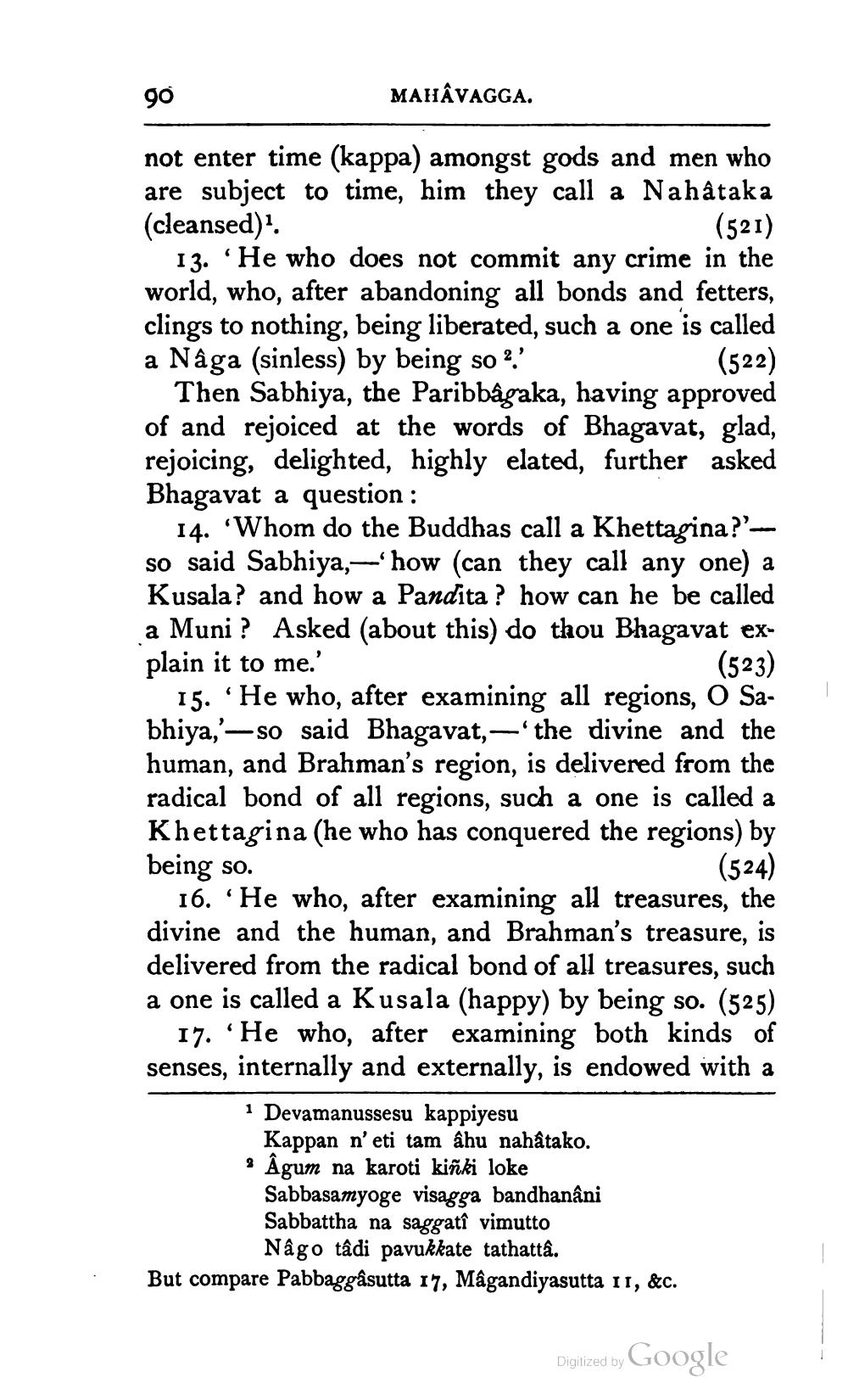________________
90
MAHÂvaGGA.
not enter time (kappa) amongst gods and men who are subject to time, him they call a Nahâtaka (cleansed).
(521) 13. “He who does not commit any crime in the world, who, after abandoning all bonds and fetters, clings to nothing, being liberated, such a one is called a Naga (sinless) by being so ?
(522) Then Sabhiya, the Paribbâgaka, having approved of and rejoiced at the words of Bhagavat, glad, rejoicing, delighted, highly elated, further asked Bhagavat a question :
14. Whom do the Buddhas call a Khettagina?'so said Sabhiya, 'how (can they call any one) a Kusala? and how a Pandita ? how can he be called a Muni? Asked (about this) do thou Bhagavat explain it to me.'
(523) 15. "He who, after examining all regions, O Sabhiya,'--so said Bhagavat,—the divine and the human, and Brahman's region, is delivered from the radical bond of all regions, such a one is called a Khettagina (he who has conquered the regions) by being so.
(524) 16. He who, after examining all treasures, the divine and the human, and Brahman's treasure, is delivered from the radical bond of all treasures, such a one is called a Kusala (happy) by being so. (525)
17. "He who, after examining both kinds of senses, internally and externally, is endowed with a
1 Devamanussesu kappiyesu
Kappan n' eti tam âhu nahấtako. · Âgum na karoti kiñki loke
Sabbasamyoge visagga bandhanâni Sabbattha na saggatî vimutto
Nâgo tâdi pavukkate tathattâ. But compare Pabbaggâsutta 17, Mâgandiyasutta 11, &c.
Digitized by Google




